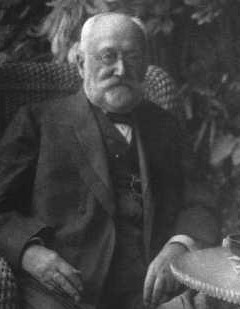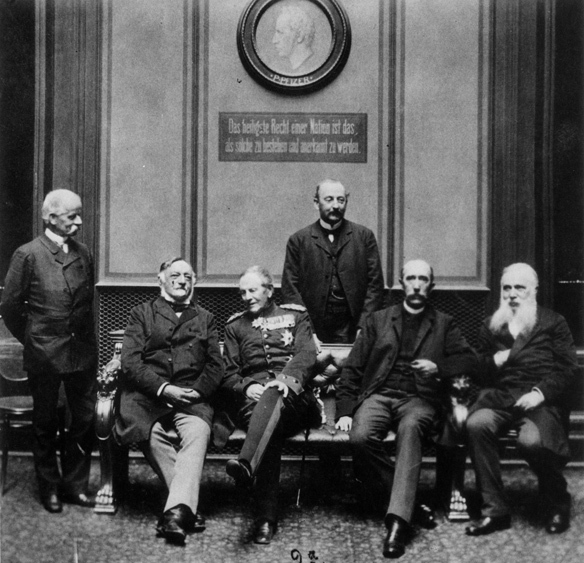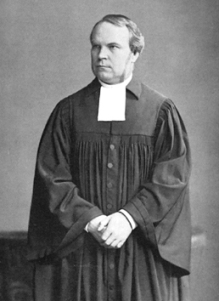|
1893 German Federal Election
Federal elections were held in Germany on 15 June 1893.Dieter Nohlen & Philip Stöver (2010) ''Elections in Europe: A data handbook'', p762 Despite the Social Democratic Party (SPD) receiving a plurality of votes, the Centre Party remained the largest party in the Reichstag after winning 96 of the 397 seats, whilst the SPD won just 44.Nohlen & Stöver, p789 Voter turnout was 72.4%.Nohlen & Stöver, p774 Results Alsace-Lorraine References {{German elections Federal elections in Germany Germany Germany,, officially the Federal Republic of Germany, is a country in Central Europe. It is the second most populous country in Europe after Russia, and the most populous member state of the European Union. Germany is situated betwe ... 1893 elections in Germany Elections in the German Empire June 1893 events ... [...More Info...] [...Related Items...] OR: [Wikipedia] [Google] [Baidu] |
Reichstag (German Empire)
The Reichstag () of the German Empire was Germany's lower house of parliament from 1871 to 1918. Within the governmental structure of the Reich, it represented the national and democratic element alongside the federalism of the Bundesrat and the monarchic and bureaucratic element of the executive, embodied in the Reich chancellor. Together with the Bundesrat, the Reichstag had legislative power and shared in decision-making on the Reich budget. It also had certain rights of control over the executive branch and could engage the public through its debates. The emperor had little political power, and over time the position of the Reichstag strengthened with respect to the Bundesrat. Reichstag members were elected for three year terms from 1871 to 1888 and following that for five years. It had one of the most progressive electoral laws of its time: with only a few restrictions, all men 25 and older were allowed to vote, secretly and equally. The Reichstag met throughout the First Wo ... [...More Info...] [...Related Items...] OR: [Wikipedia] [Google] [Baidu] |
German Conservative Party
The German Conservative Party (german: Deutschkonservative Partei, DkP) was a right-wing political party of the German Empire founded in 1876. It largely represented the wealthy landowning elite Prussian Junkers. The party was a response to German unification, universal and equal franchise in national elections and rapid industrialization. It changed from a diffuse party of broad ideology into an interest party in Bismarckian Germany. In the early 1870s, Otto von Bismarck formed his majority with the base in the National Liberal Party which emphasized free trade and anti-Catholicism. Bismarck broke with them in the late 1870s, by which time the German Conservative Party and the Free Conservative Party had brought together the landed Junkers in the East and the rapidly growing industrial leadership in the major cities. They now became the main base of Bismarck's support and successive Chancellors down to 1918. According to Robert M. Berdahl, this redirection illustrated "t ... [...More Info...] [...Related Items...] OR: [Wikipedia] [Google] [Baidu] |
Christian Social Party (Germany)
The Christian Social Party (german: Christlich–soziale Partei, CSP) was a right-wing political party in the German Empire founded in 1878 by Adolf Stoecker as the Christian Social Workers' Party (german: Christlichsoziale Arbeiterpartei, CSPA). The party combined a strong Christian-right programme with progressive ideas on labour and tried to provide an alternative for disillusioned Social Democrat voters. Part of the Berlin movement, it increasingly focused on the Jewish question with a distinct antisemitic attitude. History In December 1877, Adolf Stoecker, domestic chaplain at the court of Emperor Wilhelm I and board member of the Evangelical Church of the Prussian Union, together with the economist Adolph Wagner had founded the Central Association for Social Reform (''Zentralverein für Sozialreform''), dealing with injustice and poverty after the Industrial Revolution. The organization was meant to counter the rise of the presumably revolutionary Social Democratic Part ... [...More Info...] [...Related Items...] OR: [Wikipedia] [Google] [Baidu] |
Polish People's Party
The Polish People's Party ( pl, Polskie Stronnictwo Ludowe, PSL) is an agrarian political party in Poland. It is currently led by Władysław Kosiniak-Kamysz. Its history traces back to 1895, when it held the name People's Party, although its name was changed to the present one in 1903. During the Second Polish Republic, the Polish People's Party was represented by a number of parties that held its name. They were all supportive of agrarian policies, although they spanned from the left-wing to the centre-right on the political spectrum. It was reformed into the People's Party shortly after the Sanacja regime took power. It took part into the formation of Polish government-in-exile during the World War II, and after the war it was again reformed into the Polish People's Party, and soon after into the United People's Party. During the existence of Polish People's Republic, it was seen as a satellite party of the ruling Polish United Workers' Party that promoted rural interests ... [...More Info...] [...Related Items...] OR: [Wikipedia] [Google] [Baidu] |
Danish Party
The Danish Party (german: Dänische Partei) was a political party in the German Empire. History The party was established in 1871 to represent the 50,000-strong Danish population of North Schleswig, who remained opposed to their separation from Denmark following the Second Schleswig War in 1864.Vincent E McHale (1983) ''Political parties of Europe'', Greenwood Press, p415 It won a seat in every Reichstag elected between 1871 and 1912. Its best performance was in the 1881 elections, the only occasion on which it won two seats. The party disappeared after World War I, following the Schleswig Plebiscites The Schleswig plebiscites were two plebiscites, organized according to section XII, articles 100 to 115 of the Treaty of Versailles of 28 June 1919, in order to determine the future border between Denmark and Germany through the former Duchy of S ... and the return of Northern Schleswig to Denmark. References {{German Empire political parties Defunct regional parties in ... [...More Info...] [...Related Items...] OR: [Wikipedia] [Google] [Baidu] |
Bavarian Peasants' League
The Bavarian Peasants' League (german: Bayerischer Bauernbund, or BB) was an agrarian political party in Bavaria, Germany, from 1893 to 1933. It has also been known in English as the Bavarian Farmers' League. The BB represented the farming interests in the Landtag of Bavaria The Landtag of Bavaria, officially known in English as the Bavarian State Parliament, is the unicameral legislature of the German state of Bavaria. The parliament meets in the Maximilianeum in Munich. Elections to the Landtag are held every f ... and in the German Reichstag. Further reading * Political parties established in 1870 Political parties disestablished in 1933 Agrarian parties in Germany Liberal parties in Germany Politics of Bavaria Defunct regional parties in Germany 1870 establishments in Bavaria 1933 disestablishments in Germany Bavarian nationalism {{Germany-org-stub ... [...More Info...] [...Related Items...] OR: [Wikipedia] [Google] [Baidu] |
German-Hanoverian Party
The German-Hanoverian Party (german: Deutsch-Hannoversche Partei, DHP), also known as the Guelph Party (german: Welfenpartei), was a conservative, federalist political party in the German Empire and the Weimar Republic. History The party was founded in 1867 in protest of the annexation of the Kingdom of Hanover by the Kingdom of Prussia in the aftermath of the Austro-Prussian War.Vincent E McHale (1983) ''Political parties of Europe'', Greenwood Press, p420 They wanted the revival of the Kingdom of Hanover and the restoration of the sequestrated assets of the former ruling House of Welf. The party therefore was also called the ''Welfen'', and drew its strongest support from the rural areas around Hannover. In the Reichstag DHP deputies usually acted as allies of the anti-Prussian Centre Party parliamentary group under Ludwig Windthorst, who although a Catholic and leader of the Centre Party was a former Hanoverian Justice Minister who was loyal to the House of Welf. [...More Info...] [...Related Items...] OR: [Wikipedia] [Google] [Baidu] |
German Social Party (German Empire)
The German Social Party (German: ''Deutschsoziale Partei'' or DSP) was a far-right political party active in the German Empire. Establishment The group was established in 1889 by Max Liebermann von Sonnenberg, already widely known in anti-Semitic circles thanks to his Antisemites' Petition of 1880, his establishment of a short-lived string of discussion clubs called the ''Deutscher Volksverein'' and his prominence in the Berlin movement.Richard S. Levy, ''Antisemitism: A Historical Encyclopedia of Prejudice and Persecution'', ABC-CLIO, 2005, p. 422 The party contested the 1890 Reichstag election with Liebermann von Sonnenberg gaining their only seat. He remained a member of parliament representing the constituency of Fritzlar– Homberg–Ziegenhain in Northern Hesse until his death in 1911. Ideology The group was strongly influenced by the thoughts of Adolf Stoecker but sought to take his ideas further.Götz Aly, ''Why the Germans? Why the Jews?: Envy, Race Hatred, and the ... [...More Info...] [...Related Items...] OR: [Wikipedia] [Google] [Baidu] |
Alsace-Lorraine Party
The Alsace-Lorraine Party (german: Elsäss-Lothringen Partei; also known as Elsässer) was a political party in the German Empire. History The party first contested national elections in 1874,Vincent E McHale (1983) ''Political parties of Europe'', Greenwood Press, p417 winning 15 seats.McHale, p434 It went on to win 15 seats in every election until 1890, when it was reduced to 10 seats. As more Alsatians emigrated to France, the party's support declined, and it never won more than 10 seats following the 1890 elections. When Alsace-Lorraine was returned to France after World War I, the party disappeared. Ideology The party represented the autonomist views of the French-speaking population of Alsace-Lorraine. It protested against the German government's policies on Alsace-Lorraine, Catholics and other ethnic minorities, and was frequently allied with the Danish Party, the German-Hanoverian Party and the Polish Party The Polish Party (german: Polnische Partei) was a political ... [...More Info...] [...Related Items...] OR: [Wikipedia] [Google] [Baidu] |
German Reform Party
The German Reform Party (German: ''Deutsche Reformpartei'' or DRP) was a far-right political party active in the German Empire. It had antisemitism as its ideological basis. The initial German Reform Party was established in 1880 by Alexander Pinkert, a Saxony-based antisemite, as a strongly antisemitic and palingenetic party, advocating the elimination of the Jews and the rebirth of Germany. However this initiative only lasted until 1891. The later version of the DRP was established in either 1889 or 1890 by Otto Böckel and Oswald Zimmermann, who had been involved in the original party, under the name Antisemitic People's Party.Richard S. Levy, ''Antisemitism: A Historical Encyclopedia of Prejudice and Persecution'', ABC-CLIO, 2005, p. 22 It was based in Erfurt in Saxony. The ''Deutscher Antisemitenbund'', an initiative of Wilhelm Pickenbach, was also included as part of the newly formed party. The new party's main aim was the repeal of Jewish emancipation. The party conte ... [...More Info...] [...Related Items...] OR: [Wikipedia] [Google] [Baidu] |
German People's Party (1868)
The German People's Party (german: Deutsche Volkspartei, DtVP) was a German liberal party created in 1868 by the wing of the German Progress Party which during the conflict about whether the unification of Germany should be led by the Kingdom of Prussia or Austria-Hungary supported Austria. The party was most popular in Southern Germany. Initially, the South German democrats supported the Greater German solution of the German Question. After the establishment of the German Empire in 1871 under Prussia, the solution which excluded Austria, it advocated federalist structures and defended the South German states' rights against increasing strengthening of the central government in Berlin. Insistently, the party demanded democratic reforms, in particular strengthening of the position of the parliament, which had no say in the formation of the government and no influence on government policies as the government was appointed and dismissed by the emperor alone. In contrast to the N ... [...More Info...] [...Related Items...] OR: [Wikipedia] [Google] [Baidu] |
Free-minded Union
The Free-minded Union (german: Freisinnige Vereinigung; FVg) or Radical Union was a liberal party in the German Empire that existed from 1893 to 1910. Emergence Inside its predecessor, the German Free-minded Party, there had always been tensions between the leftist and the moderate wing. Another contentious point was the personalist style of leader Eugen Richter. When Chancellor Leo von Caprivi presented an army bill in parliament on 6 May 1893, seven Free-minded representatives, among them Georg von Siemens, decided to accept the motion. Consequently, Richter urged successfully the expulsion of the deviants. Other moderate party members, including Ludwig Bamberger and Theodor Barth, left voluntarily and formed the Free-minded Union. The left liberal wing of the Free-mindeds, loyal to Richter, assembled in the Free-minded People's Party The new party focused on political and economically liberal positions. In the federal election of 1893, it won 13 seats. The union was initiall ... [...More Info...] [...Related Items...] OR: [Wikipedia] [Google] [Baidu] |





